Sara Zouiten, ‘World-Acclaimed Scientists Tackle ‘Complexity’ at UM6P Science Week’, Morocco News, Feb. 20, 2023
https://www.moroccoworldnews.com/2023/02/354130/world-acclaimed-scientists-tackle-complexity-at-um6p-science-week
Rabat – The third edition of the UM6P Science Week kicked off on Monday at Mohammed VI Polytechnic University’s campus in Ben Guerir, bringing together high-caliber scientists, thinkers, and researchers from across the world.
The event, which is taking place between February 20 and 26, features a set of conferences, musical performances, reading circles and other activities, with each participant tackling the theme of “complexity” in relation to their field of expertise.
The UM6P Science Week “plays a catalytic role in the life of the university,” Moroccan professor and sociologist Reda Benkirane emphasized in an interview with Morocco World News, adding that the event offers students and participants the opportunity to exchange in a “multidisciplinary manner” with “the greatest scientists of our time.”
The ‘beginning of something beautiful’
Speaking at the opening of the event, UM6P President Hicham El Habti also highlighted the importance of the university’s science week, saying it aligns with the UM6P’s vision to promote applied scientific research.
El Habti hopes that the event would be “the beginning of something beautiful,” and contribute to creating a “more realistic impact.” In this regard, he called on the participants and UM6P students to seize the opportunity and benefit from the expertise and knowledge of the participating scientists. “Dare to explore,” he stressed.
Explaining the reasoning behind this edition’s theme, Moroccan academic and writer Fouad Laroui emphasized that complexity is “common in all domains” and is present in the entirety of the human experience.
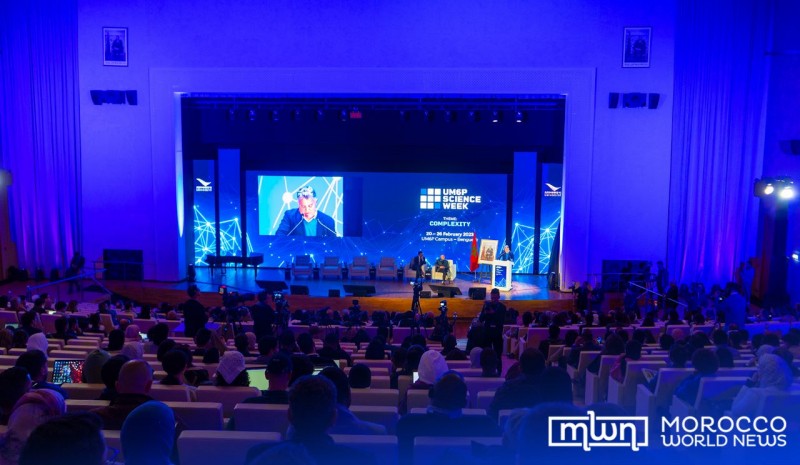
Moroccan academic Fouad Laroui speaking at the event
Benkirane, who is also the Chair of Complexities and Humanities at the Africa Business School, echoed Laroui’s statement, emphasizing the relevance and presence of complexity in all components of humanity. “Complexity is all around us,” he said.
However, Benkirane warned that the complexity in play could have a reverse impact in the future, in a “butterfly effect” fashion. “Complexity is somehow taking revenge on us,” he said, highlighting the many crises and challenges that humanity has faced over the past decades, from 9/11 to the covid-19 pandemic. “We are living in a dark age of complexity.”
Under the theme of “Complexity, Golden Age, Dark Age,” Benkirane’s presentation indicated that regardless of its future impact, which could be better or worse, complexity will undoubtedly be more “amplified and generalized .”
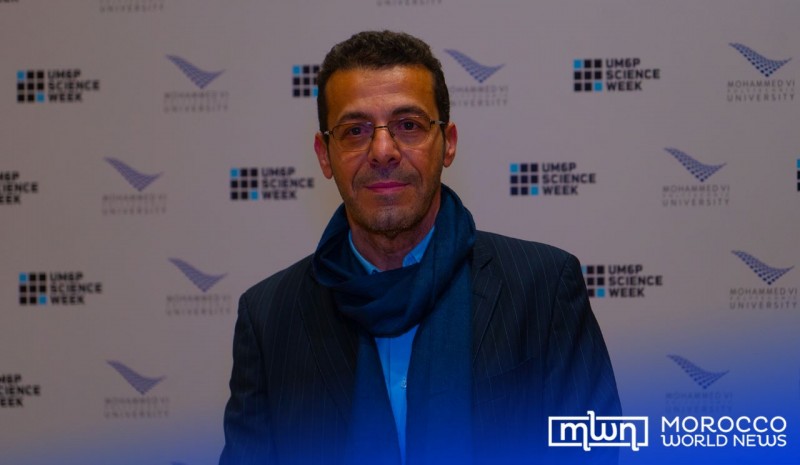
Chair of Complexities and Humanities at the Africa Business School Reda Benkirane
Complexity in Times of Crisis
Like Benkirane, French philosopher and sociologist Edgar Morin, spoke about the “challenges of complexity in times of crisis.” The well-respected 101-year-old social scientist has witnessed some of humanity’s biggest crises, challenges, and prominent events, including his participation in World War II.
“One cannot understand a system, unless one understands the properties of all its components,” Morin emphasized, explaining that life does not follow a linear order. The French sociologist also highlighted the complexity of the relations that govern people and institutions, saying that “any autonomy is also dependency.”
Several unexpected scenarios unfold in times of uncertainty and interlinked crises, Mourin noted, explaining that difficult times can prompt creativity and innovative solutions, as well as have severe repercussions and trigger other crises.
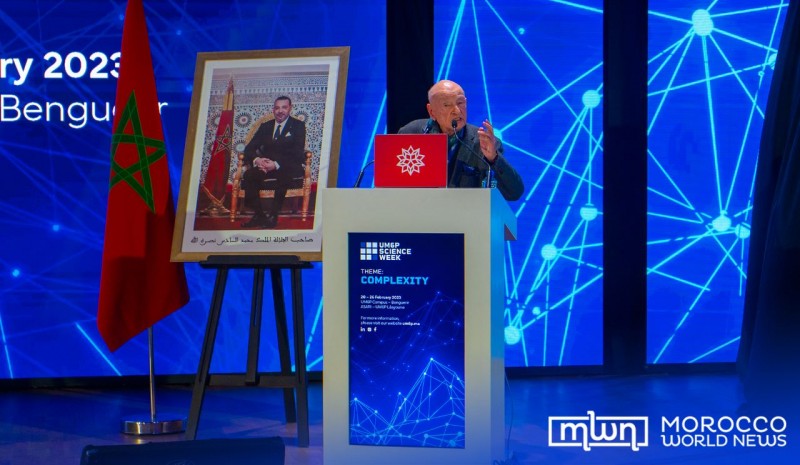
French philosopher and sociologist Edgar Morin
Talking about the crises that have engulfed the world in recent decades, Mourin said that they tend to pile up and come one after the other. He gave the example of the COVID-19 pandemic and the war in Ukraine, and the effect they have had on globalization. Describing it as “the crisis of globalization,” he said that the ongoing war has created obstacles in the face of the years-long efforts to unite the world.
In addition, the complexity of the COVID-19 crisis provoked several social, domestic, and economic crises, such as the gas and energy crisis and food insecurity in Africa. “The crisis happened during a time when the planet was in crisis,” he said in reference to the challenges that currently face humanity, such as climate change, which has aggravated in light of the current global context.
Morin drew attention to the difficult dilemma humans are bound to encounter as they grapple with these successive crises that are happening simultaneously and are affecting several domains. “This is humanity in 2023 … encountering crises that are inflating one another.”
Read also: A Panel’s Fun Foray Into the Tragic Geopolitics of Climate Change
“Humanity has no way of managing them [the challenges],” the French scientist said, stressing that “no entity can manage this crisis.” He argued that “war creates illusion and hatred,” encouraging people to promote and engage in a globalization that is based on “solidarity.”
Since all humans are affected by these crises, they must come together in pursuit of collective action, he stressed.
Meanwhile, Stephen Wolfram, a British-American scientist and CEO of Wolfram Research, spoke of the “foundation and implications of complexity.” He discussed his concept of the “Ruliad,” which is “the result of following all possible computational rules in all possible ways.”
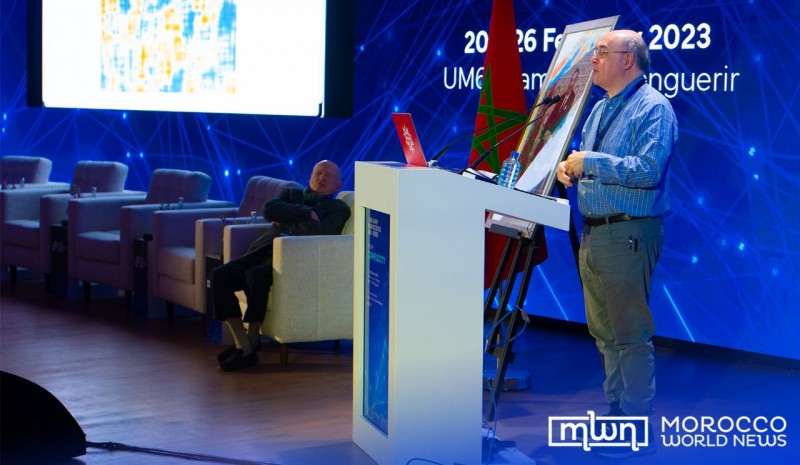
British-American scientist Stephen Wolfram
Explaining the complexity of the universe, Wolfram said that “the behavior could be simple, but the result we get from it is complex.” “The universe is running by all possible rules,” he added, explaining that it is difficult to pinpoint the very structure that governs the world.
Wolfram gave the example of ChatGPT – an Artificial Intelligence powered chatbot – during his presentation, saying that the AI-powered tool is capable of generating human-like language by implicitly learning the syntactic grammar of English.
While many think that a complex process comes into play to produce ChatGPT’s human-like language, the English-American scientist said that it simply uses the humans’ repeated structure of meaning and generalization of logic.
Other participants at the event include French philosopher, sociologist, and professor Raphael Liogier, who told Morocco World News about the goal he aims to achieve through his participation in the UM6P Science Week. He said he seeks to fight against two widely spread prejudices.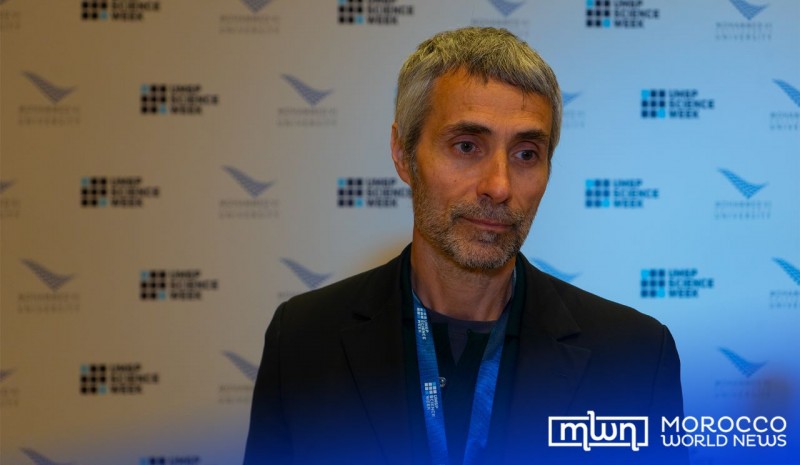
French professor and sociologist Raphael Liogier
One of those prejudices is the belief that human beings’ intelligence and conscience are the result of their complexity, Liogier explained.
The other prejudice Liogier aims to debunk is humans’ belief that they are more complex than other animals. For him, humans are in fact “complexed” animals that seek to compensate for their fragility and weakness. He told MWN: “We are complexed before we are complex.”
Meanwhile, President of the Makassed University of Beirut Hassan Ghaziri will tackle the way the “notion of complexity is transforming the engineering areas,” as well as its role in finding new ways to solve our current issues, he told Morocco World News.
Ghaziri, who is also a professor of machine learning, argued that engineers are the “agent of transformation” in our current world, explaining that at this moment the world faces “deep crises” due to new technologies, including Artificial Intelligence (AI).

Professor of machine learning and President of the Makassed University of Beirut Hassan Ghaziri
© Morocco World News. All Rights Reserved.
